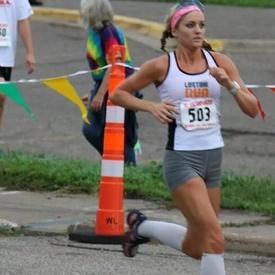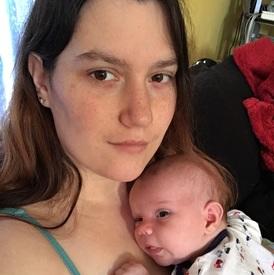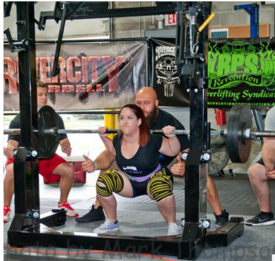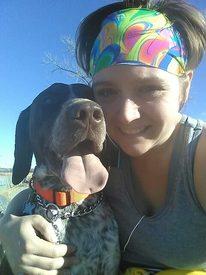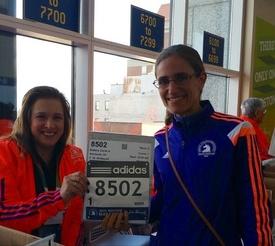Longest pre-marathon training run?

kristinegift
Posts: 2,406 Member
I'm considering running a marathon this fall, and looking at a lot of training plans, it seems like most top out at 20 miles. Leaving 6.2 miles in the dark makes me nervous, but it seems like a common "great unknown" for 1st-time marathoners.
What is the farthest distance you've run to prep for a marathon, and how do you feel that served you on race day?
What is the farthest distance you've run to prep for a marathon, and how do you feel that served you on race day?
0
Replies
-
My longest was 24, though I don't really think it needs to be?? Running is pretty mental for me, so for my first (and only!) marathon, I used a plan that went almost to marathon distance. I guess I just needed to know I could do it!
I think going up to 20 would be just fine, though. The plan I'm going to follow this year will go up to 22.
Good luck and run well! 0
0 -
Honestly, I think most plans do that because it's a round number. How fast are you? Generally, I hear a concensous that "anything over 3 hours does more harm than good"... But I don't know if I personally believe that.
My best marathon performance 3:27, my longest run was 22 miles ~ 2 hrs & 50 min... Roughly 82% of the TIME it took me to finish the marathon or 84% of the distance.
My worst marathon performance took me 4:09, my longest run? 19.4 miles roughly 2 hrs & 50 min as well... 74% of the distance & 74% of the time.
The reason most plans say 20 IMO is to avoid injury. Lots of factors go into how fast you recover/how much you can handle.
Age, how long you've been running, the mileage you put in, injury history, etc..
Since I'm 22 years old, been running ~5 years, and have a high mileage base, I know I can handle putting in long runs of even over 26 miles while training for a full... Is it always as beneficial? Probably not.
I'd say 22 is plenty, but if you mentally want to run more then DO IT!
That being said, don't worry about your 20+ milers yet. You can worry when the time comes
Go head and sign up for that marathon 0
0 -
The reason to not run over 20 miles / 3 hours is that it will take you so long to recover from that run that you will lose fitness! Yes, extremely fit people can handle longer runs and recover quickly, but a first-timer is not in that category. I would suggest sticking to a novice or beginner plan for your first marathon. They have been created by experts in order for you to have your best possible experience.0
-
The reason to not run over 20 miles / 3 hours is that it will take you so long to recover from that run that you will lose fitness! Yes, extremely fit people can handle longer runs and recover quickly, but a first-timer is not in that category. I would suggest sticking to a novice or beginner plan for your first marathon. They have been created by experts in order for you to have your best possible experience.
I agree! About 2 years ago I completed my first 30k (18.65 miles) with 12 miles being my longest run before.. I felt incredible! I had no idea what I was doing.. After the race, a bunch of runners tried to convince me to sign up for a full marathon that was 3 weeks later. Why didn't i? Because I read a million articles online about how HARD they are & how you will hit a wall/die. I got really nervous. No one ever talks like that about any other race distance...
I was so terrified. I wrote off marathons as some impossible feat in which magic happens and you will die. I didn't run my first marathon for another year... And when I did run it, I fell apart, I cried, I sobbed, I hated every step of it.
If you do the training & remain healthy, the race is a meantal battle. That is all it is. I let all the comments of how hard a marathon was eat me away. The negative thoughts & experiences of others WRECKED my confidence.
Don't let the words of others or what you read online scare you. Running even 18 miles is sufficient training for a marathon finish. You have to be mentally confident & tough!
I know that's a bit off topic, but don't let it freak you out until you experience it for yourself. It's just a battle between your mind & body throughout the race & training 0
0 -
Long runs are just one of the ingredients. Diet, rest, total weekly mileage, recovery weeks, weekly speedwork and hills are part of it. Diet, rest, injury and stress play a roll. The taper, decent weather and proper clothes/shoes are also critical. I suspect that nothing much over 20 is ever needed for your long run if you do the other stuff adequately. I personally run my long runs on trails in the local State park so I can get in the hills and long run in one run. The trails also ensure that you run slower and the pounding is less on your legs from the softer trails. Yoga and weight training are also critical components to balanced training. I suspect that many good marathoners never do more than 16 to 20 miles max. The risk of injury and over training is just too great. The total miles will matter significantly in determining your sustainable pace. Doing over 20 as a means to ensure success is no silver bullet.
I have run over 30 marathons and I have tried many variations in my training plans. It is all about suffering/sacrifice and preparation to minimize the time and pain on race day.0 -
Like Dave said, it's largely due to statistics of people being on their feet for that long and the risk of injury increasing as you tire, especially if you're new to the distance. Though as VM said, if you're able to whip the miles out quicker, you may be ok with going further if you feel good.
The plan I did called for a max of 20 a couple of times. On my last one, I felt pretty good and ended up doing 22. Mentally, it did make a difference knowing that there were only 4+ miles I'd have to go further than my longest, versus 6+.
Good luck.0 -
Like Dave said, it's largely due to statistics of people being on their feet for that long and the risk of injury increasing as you tire, especially if you're new to the distance.
Also side note: there are crazy people out there who run 50 mile & 100 mile ultra marathons
Typically a 50 mile training plan will call for a 31 mile long run with most of your runs being 20-24 ranges... In ultra training they ise the "back to back long runs"... So one weekend might be 24 miles on Saturday & 16 on Sunday... That's still only 40 miles between the two days.. In training for a 50 mile race.
100 mile is even more crazy... Longest run generally being a 50 miler, but many people do it off less.
Once you get above a certain thershold, it becomes more and more mental0 -
Thanks for all the good input! I think that 20 miles would put me at around/just over 3 hours, so I'll stick with the plan I've been looking at! I was just curious because for every half-mar I've done, my long runs were 12 miles, so 20 seemed "short" to me (compared to the total race distance) but now it makes more sense.0
-
A good taper and race day mojo will see that you cross the finish line if you put in at least one 20 mile run.0
-
The reason to not run over 20 miles / 3 hours is that it will take you so long to recover from that run that you will lose fitness! Yes, extremely fit people can handle longer runs and recover quickly, but a first-timer is not in that category. I would suggest sticking to a novice or beginner plan for your first marathon. They have been created by experts in order for you to have your best possible experience.
What about slow pokes who expect to be about 11mm? If I capped it at 3 hours I wouldn't hit 20 0
0 -
The reason to not run over 20 miles / 3 hours is that it will take you so long to recover from that run that you will lose fitness! Yes, extremely fit people can handle longer runs and recover quickly, but a first-timer is not in that category. I would suggest sticking to a novice or beginner plan for your first marathon. They have been created by experts in order for you to have your best possible experience.
What about slow pokes who expect to be about 11mm? If I capped it at 3 hours I wouldn't hit 20
I'm curious about this as well. I expect that my first marathon pace wouldn't be faster than 12mm. Does this advice change for people just looking to finish, knowing that they're going to be running slower?0 -
The reason to not run over 20 miles / 3 hours is that it will take you so long to recover from that run that you will lose fitness! Yes, extremely fit people can handle longer runs and recover quickly, but a first-timer is not in that category. I would suggest sticking to a novice or beginner plan for your first marathon. They have been created by experts in order for you to have your best possible experience.
What about slow pokes who expect to be about 11mm? If I capped it at 3 hours I wouldn't hit 20
I'm curious about this as well. I expect that my first marathon pace wouldn't be faster than 12mm. Does this advice change for people just looking to finish, knowing that they're going to be running slower?
If you run 11-minute miles then you would peak at about 16 miles for your long run. If you are concerned that is not long enough, what you should probably do is to run a hard workout the day before. Maybe 6 miles at a 10-minute pace. That way you will be doing your long run on tired legs, which will simulate the exertion of a marathon.
You are better off increasing your weekly mileage by doing more shorter runs rather than putting all your eggs into a 20-mile basket. Don't worry; you will be able to finish the marathon on race day. Ultrarunners who do races of 50+ miles will rarely train more than 60% of that mileage in a single run; they train by doing back-to-back long runs, which gets them used to putting in a lot of miles while being much less stressful on their bodies. You would be doing the same thing, only for a shorter distance (but perhaps an equivalent period of time to a faster ultrarunner).0 -
My first marathon was a 55k, (34 miles) with my longest run at 22 miles during training...so I was just winging the last 12 miles.
then my next race after that was a 50 miler, with my longest run being the 55k I had just run, so 16 new miles there.
trust your training.0 -
One aspect people are missing is the psychological side of training.
For my first marathin I had a real block on running 20 miles, I don't know why, I didn't see it coming but it troubled me. In the end I ran a 21 & 22 mile run and whilst it cpuld be argued that they were "too long" physically, psychologically it was just what I needed. When I lined up on the start line I had no nerves and was completeley confident in my training. For that reason alone I am glad I tipped the 20 miles.0 -
One aspect people are missing is the psychological side of training.
For my first marathin I had a real block on running 20 miles, I don't know why, I didn't see it coming but it troubled me. In the end I ran a 21 & 22 mile run and whilst it cpuld be argued that they were "too long" physically, psychologically it was just what I needed. When I lined up on the start line I had no nerves and was completeley confident in my training. For that reason alone I am glad I tipped the 20 miles.
There are other ways to build confidence that work just as well and actually help train you for the race instead of depleting your body. Why is 20 miles such a special number? Many elite runners go farther, and many new runners max out at 16 and do great in their races. Yes, most people seem to think 20-22 is the sweet spot, but I can assure you, I've bonked in more than one race when I've done 4 or 5 long runs over 20 miles.0 -
Why is 20 miles such a special number?
I'm not saying that specifically 20 is a special number. The point I was making was that for some reason, one that I had not envisaged, I started to have a mental block about running 20 miles. Because of that running the 20 was psychologically important for me. It could have been 15 it could be 18 but when you toe the line you want to be in a position where psychologically, you feel comfortable.
Do I "need" to run 20 during my prep now? No, that barrier has been overcome, my marathon training does tend to get up to 20 miles but as with my marathon next week, it's not the end of the world if I don't do it.
I am well aware of programs like Hansons where you max out at 16 but run a lot more during the week. That doesn't suit me for a variety of physical reasons. That doesn' make it a better or worse program, just one that's not for me.
So at the risk of rambling on, I want to make it clear I was talking about the psycholology of the run. Will everyone need to do it? of course not0 -
So at the risk of rambling on, I want to make it clear I was talking about the psycholology of the run. Will everyone need to do it? of course not
That makes some sense. And yes, the psychology is a huge part of it, but what doesn't make sense is to wreck your body in an effort to get the right mindset for the race. I do think that happens to a lot of people who really struggle to get that 20-mile run in when they actually don't need to. But of course, for a lot of runners, the 20-mile run does make sense and it's perfectly reasonable for them to shoot for that.0 -
I have the same fear and concern about my marathon training. I cap out at 20 miles and it is very hard for me to wrap my head around having to run 6 more miles and never have ran that before. I am a total girl where I have to run or at least complete that distance once but I think I am going to have to throw that out the window for this marathon in September and trust my body to pull me through. But really if you run 20 you can run 30 tight ?
 lol 0
lol 0 -
My longest has been 20 miles and I am running my first marathon this coming Sunday. I will you let you know how it goes. But I have practiced my longer runs from 12 -20 miles the day after running 5 - 8 milers at pace. Some of those long Sunday runs were in fact on tired legs. The taper is going well and all my taper runs have been at pace and it feels great. Looking forward to the experience this weekend and I have learned tons about how to get through a run when things are not going well (learned during those long Sunday runs) - like shorten my stride, stand up straight, how to fuel, breathing, and so on. Looking forward to seeing what the experience brings. Good luck to you.0
-
I'm also an 11mm marathon pace, and 16 miles was my personal demon up until 2 weeks ago. For 3 weeks I couldn't get to 16 because of illness and injury. Once I got up and over 16 and conquered 18 miles, I no longer feel like I need to do 20 on a long run. Still some people have a mental hurdle of 20-24 miles that they need to get through before the marathon. It's worth the money to talk to a coach to look at and, if necessary, reevaluate your plan in light of your age, fitness level, and goals.
I came across this article and sent it to my coach:
http://runnersconnect.net/coach-corner/are-you-putting-too-much-emphasis-on-the-long-run-as-part-of-your-marathon-training/
I'm meeting with him tonight to talk about capping my long runs at 16-18 mi since 3 1/2 hours seems to be the magic number where I can recover in a day.
Seriously though you can find great, reputable coaches at any price point. Mine is an Olympian and charges $50 an hour, a bargain when I think about how much I spend just on Gu and socks.0 -
I have experimented with different top distances and I really think 22 works best for me. I also like to do a 22 mile progression, and that number works well for it...7,7,7,1 cooldown.0
-
Fresh off my first marathon from this past Sunday - 20 milers worked fine for me. I really have prescribed to the belief of cumulative mileage being just as if not more important.0
This discussion has been closed.

